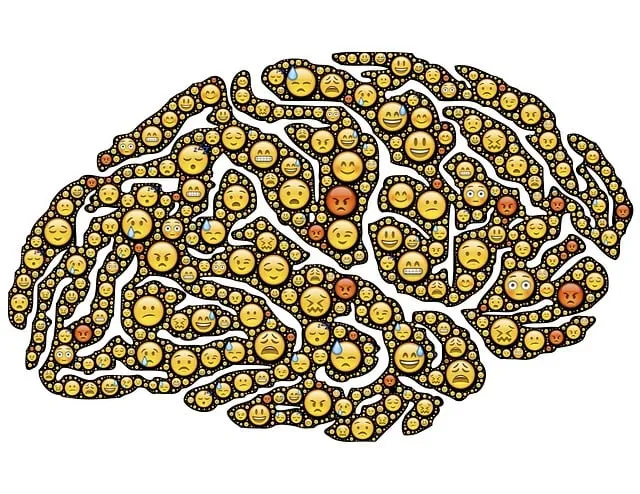Mental health advocacy plays a pivotal role in creating supportive communities and transforming lives. This article delves into the crucial aspects of mental health advocacy initiatives, exploring their impact and potential. We examine the leading role played by organizations like Parker Kaiser Permanente in providing comprehensive mental health services. Understanding community engagement is key to successful programs, along with effective strategies that foster positive change. Success stories highlight how advocacy has brought about profound shifts, showcasing the power of these initiatives.
- Understanding Mental Health Advocacy: Its Role and Impact
- Parker Kaiser Permanente: A Leading Provider of Mental Health Services
- The Importance of Community Engagement in Mental Health Initiatives
- Effective Strategies for Mental Health Advocacy Programs
- Success Stories: How Advocacy Has Transformed Lives and Communities
Understanding Mental Health Advocacy: Its Role and Impact

Mental health advocacy plays a pivotal role in shaping public understanding and support for individuals dealing with mental health issues. It acts as a powerful catalyst for change, aiming to destigmatize mental illness and promote accessibility to quality care. Advocacy initiatives, like those offered by Parker Kaiser Permanente mental health services, focus on raising awareness, educating communities, and providing direct support to those in need.
These efforts contribute significantly to building a more inclusive society where individuals can openly discuss their struggles without fear of judgment. By implementing strategies such as Confidence Boosting workshops and Burnout Prevention Strategies for Healthcare Providers, advocacy organizations empower people to manage stress effectively and maintain optimal mental well-being. This, in turn, fosters resilience and enhances the overall quality of life for both advocates and the broader community.
Parker Kaiser Permanente: A Leading Provider of Mental Health Services

Parker Kaiser Permanente stands as a beacon of hope for mental health advocacy, offering comprehensive Parker Kaiser Permanente mental health services that are transforming lives. With a strong focus on prevention and early intervention, they provide a diverse range of programs designed to support individuals in managing their mental well-being. These initiatives include innovative Mental Wellness Coaching Programs Development that empower people with the skills to navigate life’s challenges resiliently.
The organization prioritizes Mental Health Awareness by breaking down stigma and providing accessible resources. Through community outreach, educational workshops, and online platforms, Parker Kaiser Permanente fosters open conversations about mental health, encouraging individuals to seek help without fear of judgment. Their holistic approach, combining clinical expertise with support networks, is building resilience within communities, ensuring that everyone has access to the care they need for a fulfilling life.
The Importance of Community Engagement in Mental Health Initiatives

In the realm of mental health advocacy, community engagement serves as a potent catalyst for positive change. Initiatives like those offered by Parker Kaiser Permanente mental health services underscore the significance of fostering connections and empathy within local communities. By actively involving residents, these programs create a supportive environment where individuals can openly discuss their experiences, share coping skills development strategies, and learn effective stress management techniques.
Community engagement goes beyond mere participation; it encourages collective ownership of mental wellness. Through collaborative efforts, Empathy Building Strategies become more accessible and relevant, fostering a sense of belonging and reducing the stigma associated with seeking help. This approach ensures that mental health resources cater to the unique needs of diverse communities, ultimately enhancing overall well-being.
Effective Strategies for Mental Health Advocacy Programs

Mental health advocacy initiatives are powerful tools for creating systemic change and improving access to quality care. Effective programs focus on educating communities about mental health issues, reducing stigma, and fostering open conversations. One successful model is the approach taken by Parker Kaiser Permanente, which integrates mental health services into primary care settings, making support more accessible. This strategy aligns with research highlighting the importance of holistic care for overall emotional well-being promotion techniques.
Additionally, these initiatives should incorporate evidence-based practices like conflict resolution techniques to address interpersonal challenges contributing to mental distress. Encouraging self-awareness exercises and peer support groups can empower individuals to manage their mental health proactively. By combining education, accessibility, and community engagement, advocacy programs can effectively navigate the complex landscape of mental healthcare, ultimately improving outcomes for those seeking support.
Success Stories: How Advocacy Has Transformed Lives and Communities

Mental health advocacy has proven to be a powerful tool for transformation, as countless individuals and communities bear witness to its impact. Take the story of Parker Kaiser Permanente, for instance, where dedicated advocates have played a pivotal role in expanding mental health services and increasing accessibility. Through their efforts, they’ve not only reached out to those in need but also challenged societal stigma, fostering a more inclusive and supportive environment.
This initiative has been instrumental in empowering individuals to take charge of their emotional well-being. By promoting emotional intelligence and positive thinking, these advocacy programs have facilitated emotional healing processes, enabling people to lead happier and more fulfilling lives. The success of such efforts resonates deeply, inspiring others to join the cause and contribute to building stronger, healthier communities where mental health is prioritized and celebrated.






